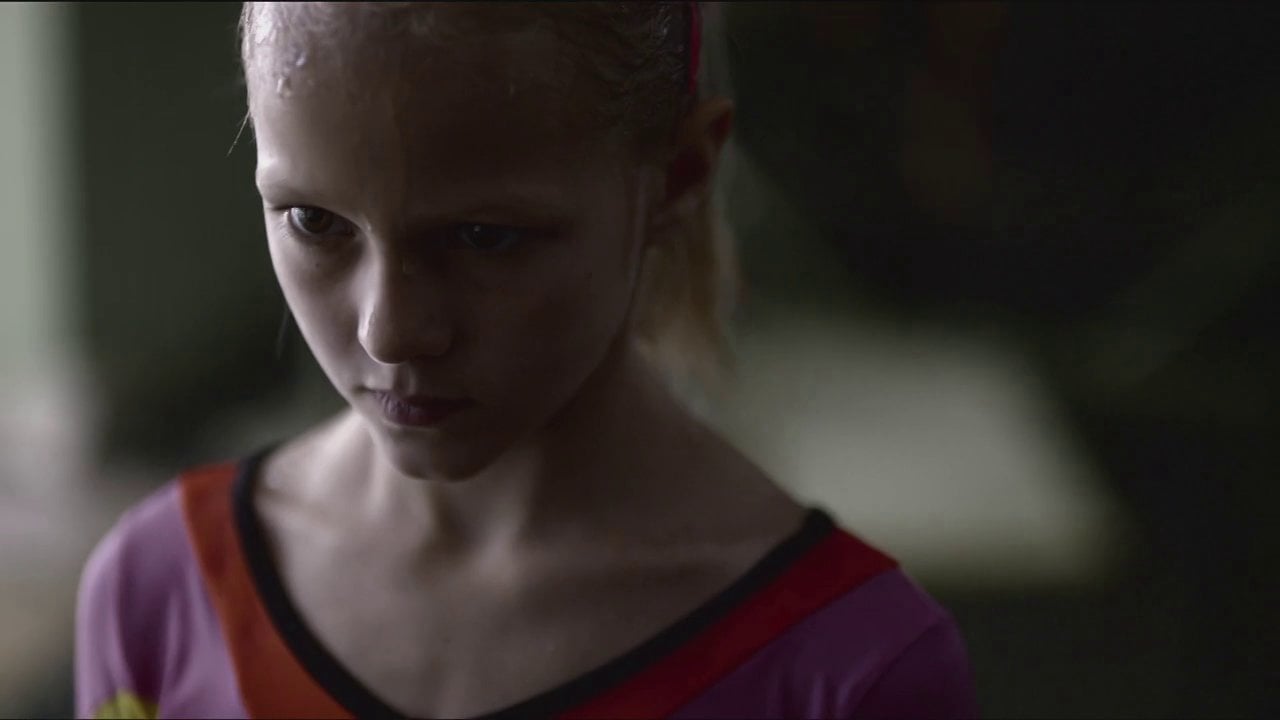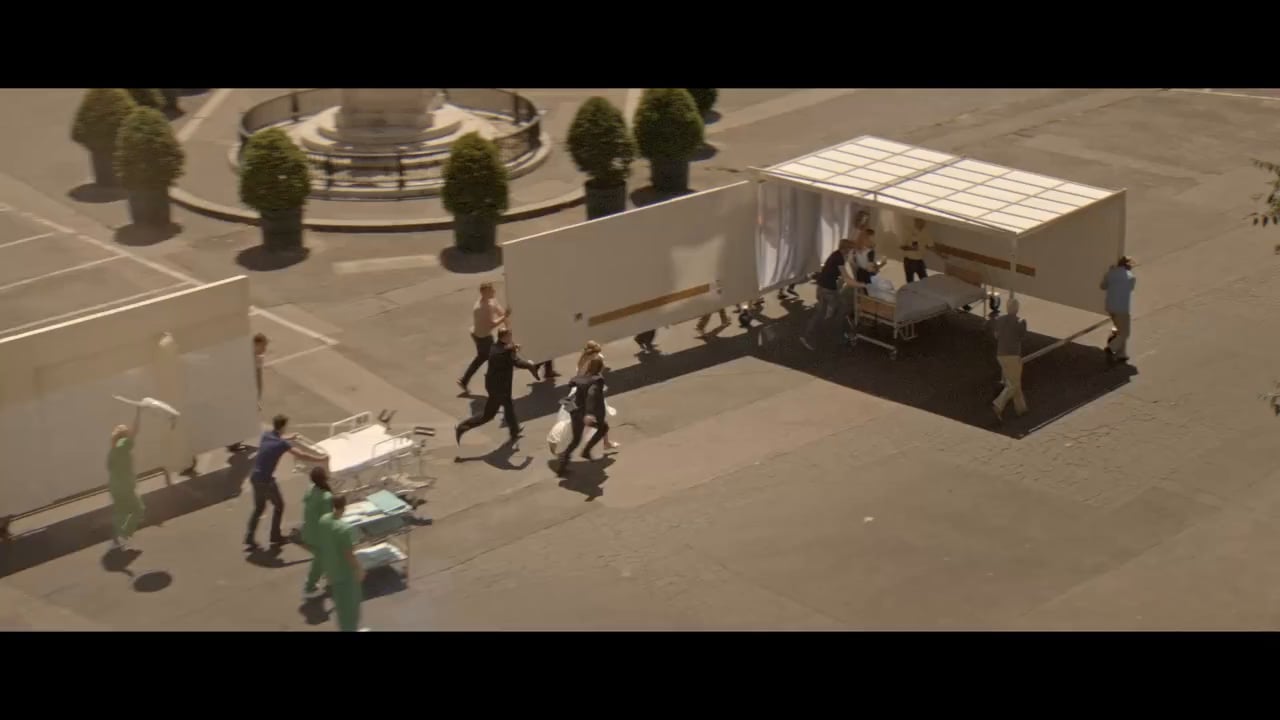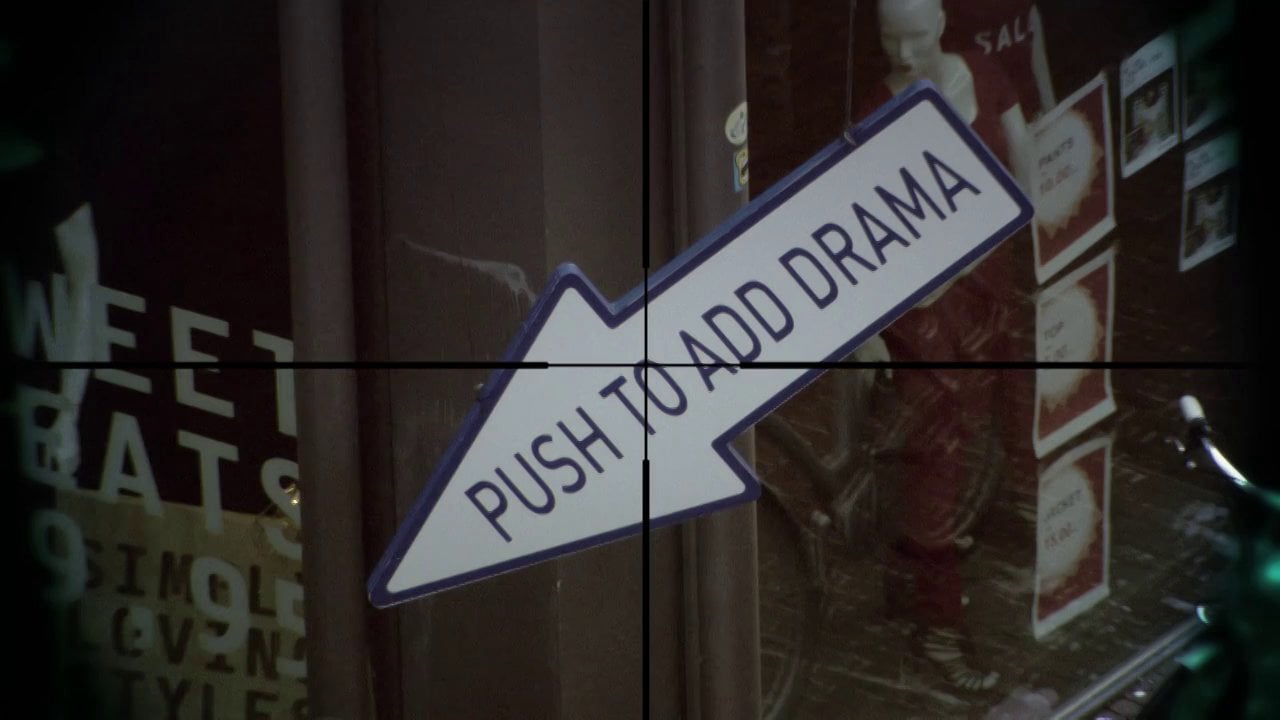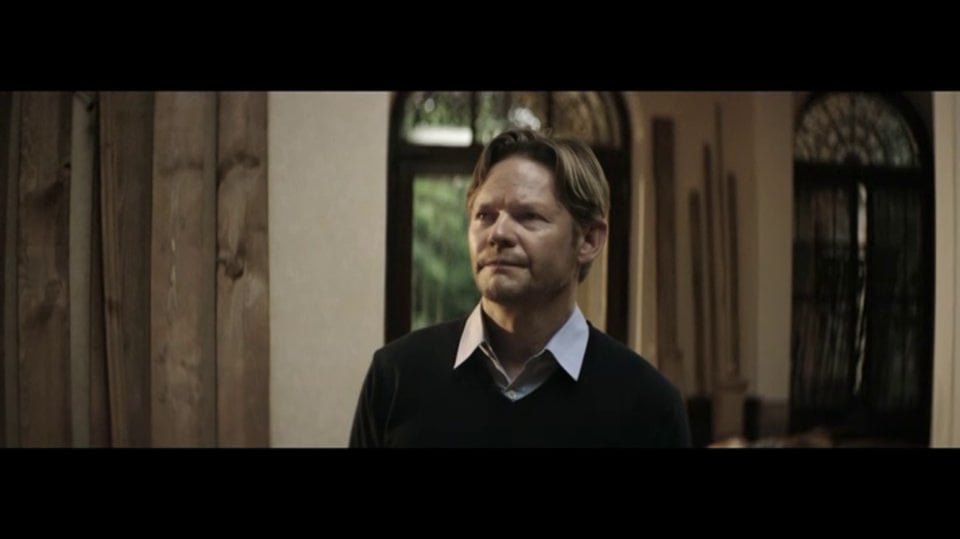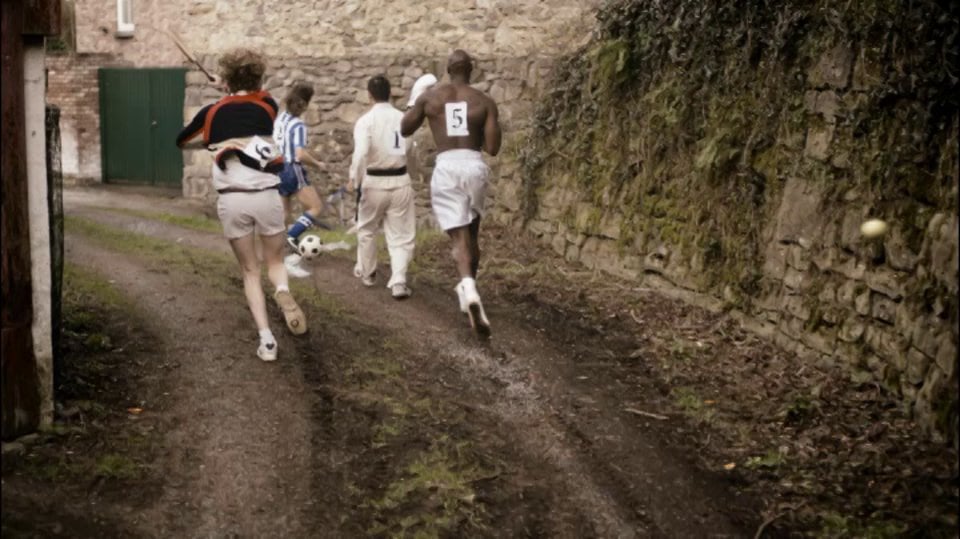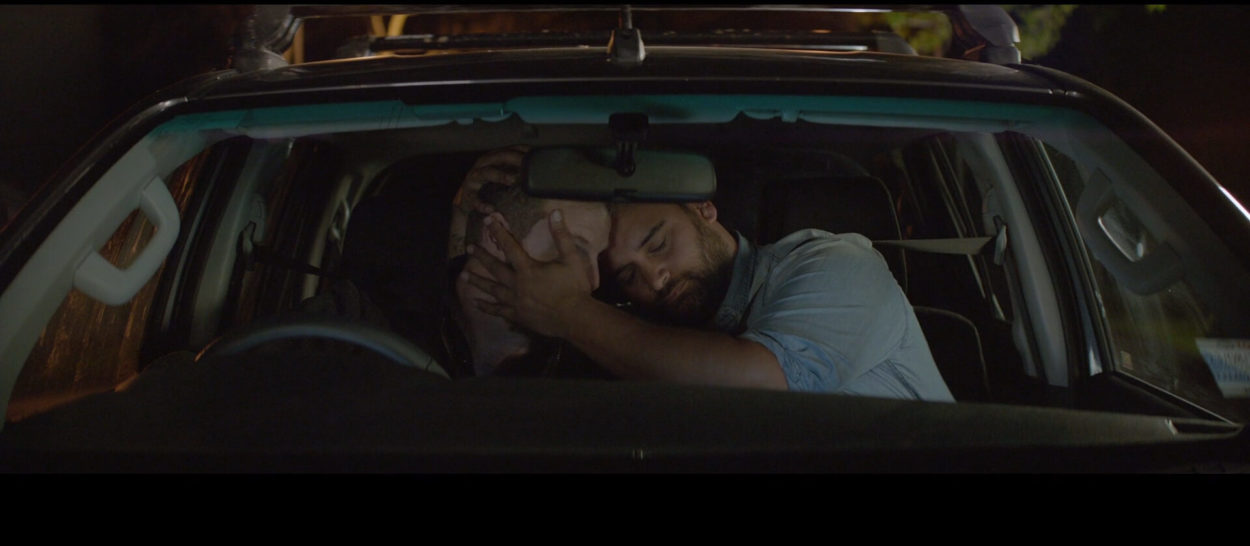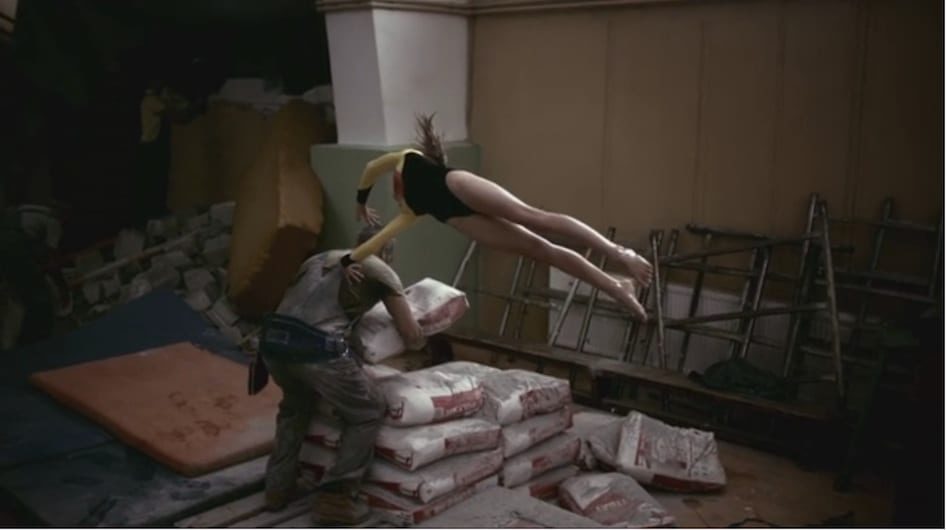Shot in 2007, Czar director Koen Mortier’s movie Ex Drummer is still next level when it comes to being outrageously violent, horribly misogynistic and bizarrely brilliant. It is a stomach-churning tale of a writer/poet who agrees to become the drummer for a band of psychopathic, scum-of-the-earth losers for one show.
What movies connected with you as a young adult?
When I was 12 years old I saw Taxi Driver by Scorsese and it made a devastating impression on me. I was knocked out for more than 20 years and even now I think of that moment sometimes. As a result I’ve never saw it again, so it could keep up with the mythical status it has for me.
Further on I was very lucky to have a grandfather who watched old Black & White movies that were shown on national TV every Saturday afternoon. Sitting next to him I watched the whole film history without really knowing that it would become something very important for the rest of my entire live. I’ve seen John Ford, John Huston, Fellini, Charles Chaplin and many other film maker’s films before even thinking of going to film school, without knowing that directing even existed.
What was it about Herman Brusselmans’ book Ex Drummer that inspired you to write the screenplay and make a movie of it? Was the book as hilariously surreal as your film or was the novel a trigger for your own imagination and what you wanted to express?
Herman was what we called an X-generation writer before it existed. He was the one and only writer when I was an adolescent who understood what we were about and how we felt. When Herman told the press that my short film was the best film he’d seen in 1997 I tried to get in contact with him and asked him if I could make a film out of one of his books. He kind of said that Ex Drummer would be perfect for me, so I accepted the offer.
The book was funny, anarchistic and about the Rock & Roll scene, but I added lots of moments and thoughts of myself and also we started to improvise on the characters with the cast. The book wasn’t as violent as the film, it was more a love story with a strange story line. It was somehow my goal to make an explosive and anarchistic film and I wanted to shock the Flemish film community, as it was a really conservative bastion and they needed a wake-up call.
The film was seen as very controversial and even unacceptable, but when the film got selected for A-level film festivals (Karlovy Vary, Toronto, etc) and was sold to more then 25 different countries they withdrew their negative attitude.
In both your movies, Ex Drummer and 22nd of May, your visual language is as integral to the non-linear narratives as the plot. For instance the singer-rapist-serial killer in Ex Drummer, called Koen too, is so fucked up with violent obsessions that the rules of physics are reversed and he walks around his flat on the ceiling. How did these story-telling devices evolve?
I try to translate the psychological state of mind of my characters in a filmic way. The character “Koen” from Ex Drummer wasn’t able to be part of a normal world anymore. His extrovert behavior proved that during the whole story, but I wanted to show his real “Angst”, so I made him live on the ceiling of his apartment. At a certain point he tries to come back to the floor of his house, but it’s too late, he can’t go back. He’s lost for ever.
My characters are pretty eccentric, drag some heavy history and are at the same time very lonely, I try to translate that feeling into the image/ style or in the way how they move, talk and stand in the world I’ve created. They all are in search of love and tenderness, but are they willing to give love themselves? This way of showing my characters is the way I see film and this evolves from the very beginning during the writing phase. I also know my cast while I write, so I try to introduce elements of their personality into the characters, so the actors feel aligned with the character they are playing.
We think the protagonist is a super hero… he never loses face or sense of self amongst the chaos, he keeps the band in line, he’s the drummer, manager, biographer and he does the world a service by killing the psycho Koen de Geyter. He also only sleeps with other women if his wife can sleep with them too. Who did you draw upon to create the anti-hero, is he an alter ego?!!
Not at all. The protagonist from Ex Drummer is God and the Devil at the same time, because he’s writing the story. He’s misusing the other characters to get new ideas for his next book and the result of that book is the film itself.
He’s the translation of the “uber” bad, the one who takes control of their lives and is going to destruct their miserable life. I based him on the ultimate bad person, the ones who are playing the chords of the world. The white-collar criminals, those who decide who survives in the miserable world and who don’t. They misuse nuclear knowledge to attack countries and they misuse their power to sell this via the media. My protagonist is in a way based on those kind of ruthless people, but on a lower, provocative level. He kills Koen de Geyter to insure his own safety and that of his wife, he doesn’t kill him to make the world a better place, that is not the way he is.
What is your creative process – do ideas for instance develop in rehearsal or during the shoot or is everything nailed down in pre-production?
I stay open until the very last minute for changes, I think filming is a process of evolving a story or an idea, so it’s absolute nonsense to nail down something during the preproduction. I try to inform the crew and actors that what is written and decided is not written in stone, but should be elastic and open to new and better ideas. In the beginning this is difficult to accept, but once you’re on track it’s very easy to throw things away if the goal is a better film. Changes happen in every different creative step and on every level.
There’s not a scene in your work – both your commercials and movies – that isn’t deeply considered. Because of the surrealist and existential elements in your film making we’re assuming that you are informed by contemporary art, is this the case? What informs your visual creativity?
I’m strongly affected by photographic art. For Ex Drummer I was influenced by the work of Nan Goldin and the paintings of Caravaggio and Goya. I was searching for a certain dark and extreme violence and I remembered the paintings of Caravaggio and Goya, so I tried to translate my characters and their violence towards those paintings. The pictures of Nan Goldin were important in their feeling, atmosphere and reflections.
What other filmmakers and philosophers do you greatly admire?
I like hundreds of filmmakers and for very different reasons, but I’m more someone that loves one film. It’s true that if a director made that one film that I loved I would follow his work to the end, but most of the time it’s that one film that stands out for me and gives me such an incredible great feeling that I carry that for years.
I also love to read books and it also goes the same way as for films. That one book that speaks to my personality is the one that makes me read the whole oeuvre of that writer. The difference is that I have about 10 books that I really want to adapt into films and those books stay in my mind till I’ve made them or someone else has.
I also listen to a lot of music from every period, I listen during the writing process, and try to convince musicians to become part of my plan. So before I begin shooting I have half of my soundtrack already, so the cast and crew can listen to it if they wish, so they can get the feel of the scene or the rhythm of the moment.
Some of your team from Czar.be, your commercials company, also work alongside you on your films. How does this collaborative process work?
Eurydice, who manages Czar is not only my queen and biggest influence, she’s also my producer. She’s the first reader and the first commentator on my scripts and I really hate that moment when she’s finding the weak spots in my new born kid. But then after feeling bad about the remarks she gives I start to think and start to chew on what she said. I have to admit that most of the time she’s completely right and I’m wrong… What follows is a small excuse and a large rewrite.
Your singular way of story-telling is also evident in your commercials which are complex feats of visual engineering. Does making movies inform your commercial directing and vice versa?
There’s always been a crossover in between writing and making my movie and writing and making commercials. I believe that a commercial is a small story in itself and that it needs as much nursery and care as when you make a movie. I can only make commercials that I care about and I try to involve my complete personality in them as if it would be my own feature film.
I believe that I’m asked to take care of a product, so that is what I do. In a treatment I take a vow for that idea and for that particular brand and I do take my vow seriously, because I want to make the film I promised to make and I believe hundred percent that this film is what the brand needs and what they want. I’m not lying to myself at that point and that is also something I learned from making movies and also from working with my friend Joe as Lionel Goldstein. Because the biggest influence in my work is my work as Lionel Goldstein where we really tried to make the best possible film under any circumstances.
I also learned from being Lionel that every idea can have a perfect translation towards a great commercial if all noses are directed towards the same direction. To be honest, often they don’t, it feels more and more that everyone has his own hidden agenda and that means the death penalty for creativity.
Will you be making another movie soon? If so, can you say what it is about?
I have two feature films on the roll. The first is called Angel and is based on a book of the famous auteur Dimitri Verhulst which is about the sudden death of a famous cyclist in the bed of a Senegalese prostitute. The story is told from the point of view of the woman.
A second feature film project is called Haunted and is based on a book written by Chuck Palahniuk (also the writer of Fight Club), but the project is very controversial and many US producers are afraid of controversial content. But I believe that this project could be my real international break through as a movie director.
And what are the key lessons you have learnt from making your previous films that you will be applying to these?
I learned a big lesson out of my second film 22nd of May. Because the film is about being in someone’s head, and because I took my own way of thinking as the base for the main character the film turned out to be very experimental and at a certain point completely incomprehensible.
The lesson was that you cannot expect people to understand your way of thinking, that people can understand the experiment of your own mind and as a director you may not expect that people are willing to watch it, meaning really being a ticket, renting a babysit and paying a parking ticket just to see the result of your own thoughts. That is just too pretentious and I will never go by that path again. The subject of 22nd of May was really great and even visionary, but I just blew it because of the experimental feeling the content translates.
See a selection of Koen Mortier’s commercials in Related Content

